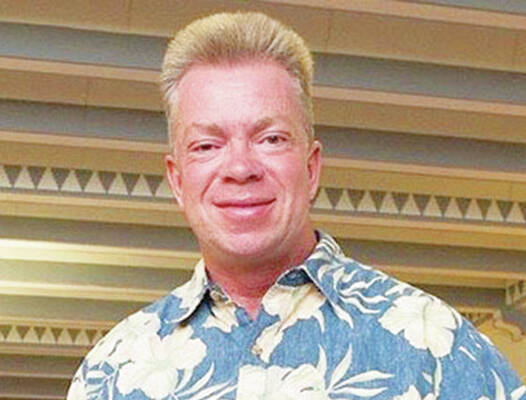LIHU‘E — For some of Hawai‘i’s most vulnerable kupuna, a little-known government position known as the Long-Term Care Ombudsman can mean the difference between torment and safety.
“You’re living in a nursing home — let’s say you don’t like the food, or a nurse is not treating you well, has some kind of attitude toward you,” said John McDermott, Hawai‘i’s long-term care ombudsman. “In the old days, you would talk to one of your kids and they could maybe resolve it. But your kids don’t live here anymore because nobody can afford housing, so everybody moves to the mainland. And so, that kind of network doesn’t exist as much as it used to. So who can you talk to? Well, the ombudsman.”
Since McDermott first began heading the program in 1998, his staff never consisted of more than three additional full-time workers. And for several years, McDermott led the program with no additional staff. In 2017, the state Legislature granted the program funds for four part-time contractors and one full-time staff member on O‘ahu.
Even still, the program has lagged behind national standards. A 1995 report by the National Academy of Medicine found that for a state’s long-term care ombudsman program to operate at a satisfactory level, there should be at least one full-time paid staff per 2,000 long-term care beds. Hawai‘i has almost 13,000 beds across roughly 1,700 facilities and only two full-time ombudsmen staff, making the state’s ombudsman program one of the country’s least equipped.
On top of this, McDermott has never had a full-time staff member based anywhere but O‘ahu — meaning any resident in need of help on a neighbor island has to wait for him to show up.
“Just the airport itself is an hour and a half going to wherever, hour and a half coming back — that’s three hours wasted right there,” McDermott said. “And then add the time to pick up the Alamo car, and so I basically have enough time to visit maybe two facilities when I’m on the neighbor island. And because I’m covering the whole state, those two facilities are not gonna see me for another year. That’s crazy.”
According to McDermott, that time between visits means each conversation he has with residents becomes less productive. Residents know he likely won’t be back for a year or longer, he said, and they’re often reluctant to tell him of wrongdoing for fear that their caretakers might retaliate.
“You gotta have somebody who lives on the island and who can respond very quickly, because otherwise people don’t trust you that you can protect them,” he said.
“If they spill their guts, they tell you what’s not working, they possibly put themselves in danger. And if you have an ombudsman who is going to come back the following week, they’re not as much in danger, because the facility staff — they know that there’s somebody who’s gonna be checking on them to make sure that everything’s still working as it’s supposed to.”
In 2022, then-Gov. David Ige included in his budget funds to add an additional five full-time state ombudsmen — one on Kaua‘i, one on Maui, one in Hilo, one in Kona, and an additional ombudsman on O‘ahu.
However, the ombudsman program has to wait for the state Department of Health to complete a series of bureaucratic procedures before the hiring process can begin. And with every passing day that McDermott is unable to fill the positions, he grows more worried that the funds may never come.
“The fear that I have is that the Legislature says, ‘Well, we gave you this money — you didn’t fill the position, so maybe you didn’t really need it,” he said. “So (I had) 24 years of pushing to get this, and I can lose it so easily because the Department of Health didn’t actually approve the posting of the positions. So, that’s what we need to happen.”
Ultimately, McDermott hopes that between newly elected Gov. Josh Green’s medical background and a new director of the state Department of Health, those funds may come sooner rather than later.
“I’m keeping my fingers crossed that they will be able to say to the bureaucracy that this has to move faster — this is needed now,” he said. “John is the only one who knows how to train these people, and he wants to retire before he drops dead, so we’ve got to do this now.”
Those interested in working or volunteering with the long-term care ombudsman program can call McDermott at 808-586-7268 or email him at john.mcdermott@doh.hawaii.gov.
•••
Jackson Healy, reporter, can be reached at 808-245-0427 or jhealy@thegardenisland.com.


